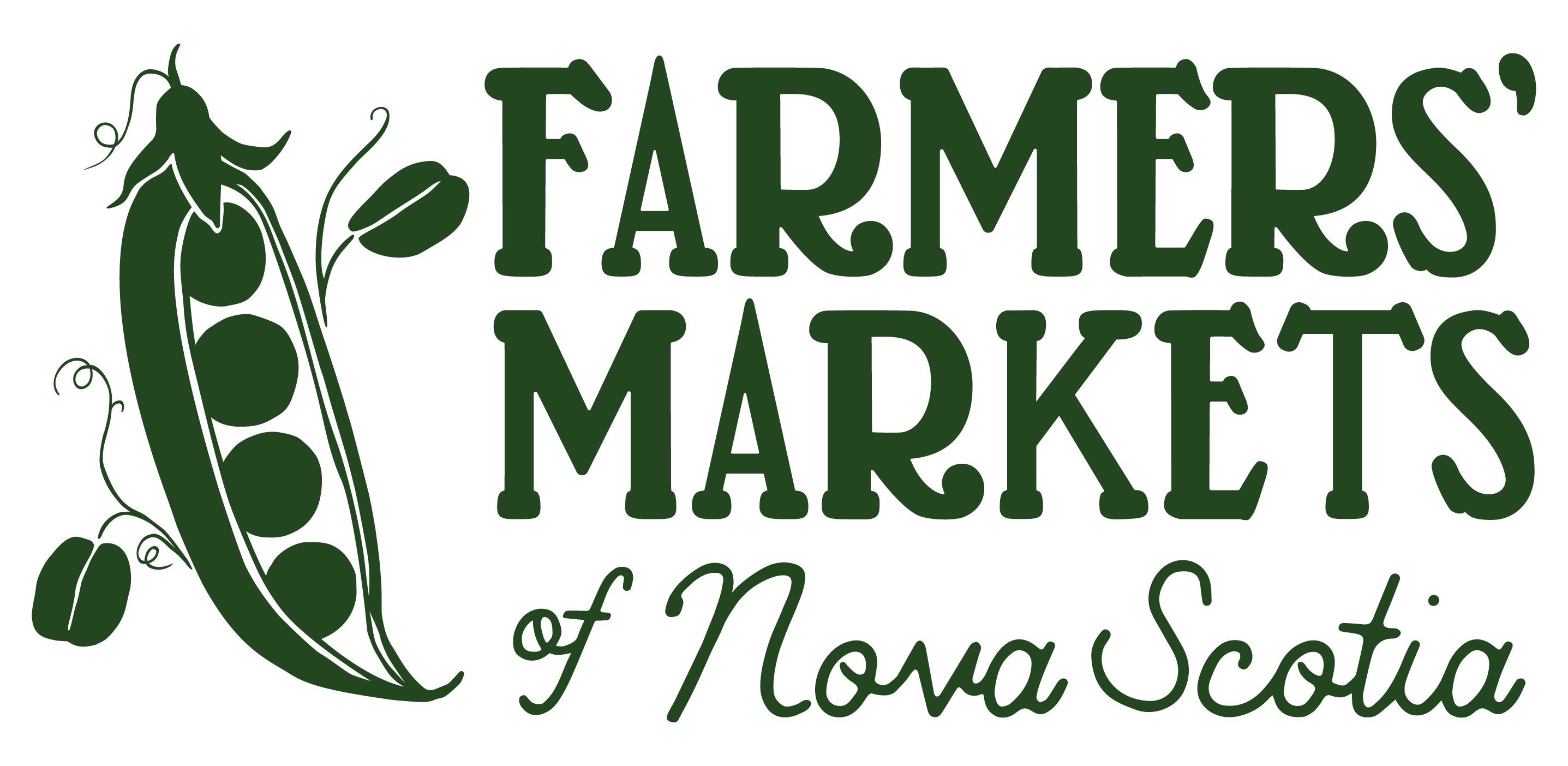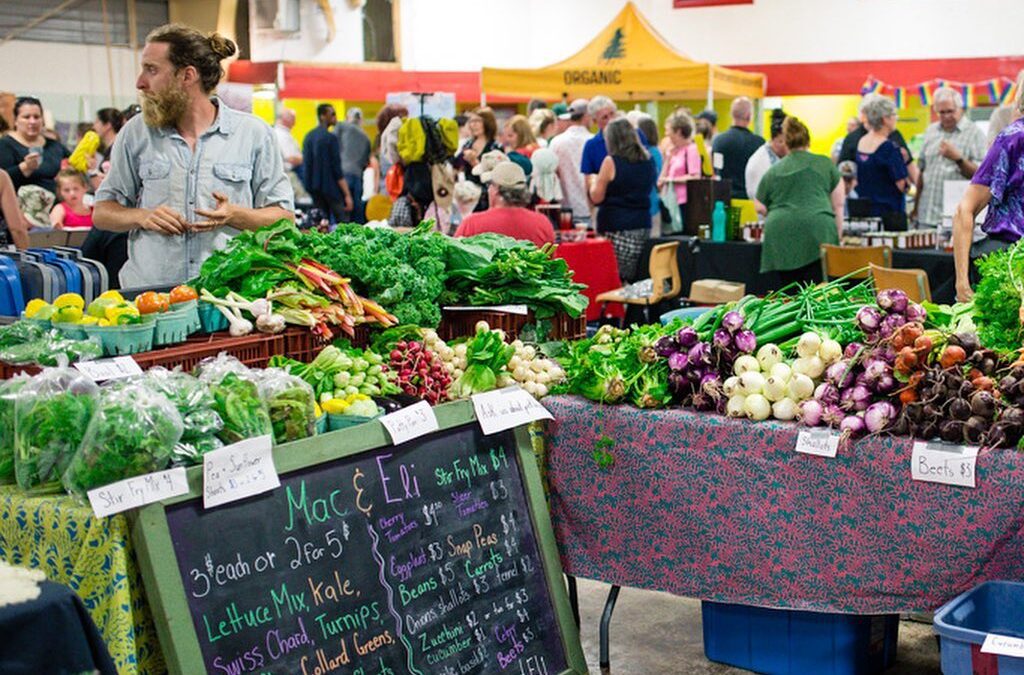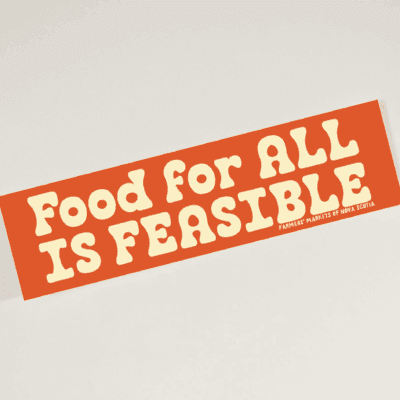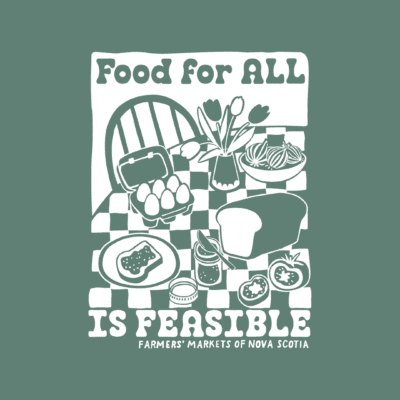Cover photo by Mabou Farmers’ Market
Did you know? Nova Scotia’s farms are 1/3 the size of the national average of 778 acres. [Source]
Support small, sustainable farms
- 75% of farmers selling at farmers’ markets said they use agriculture practices consistent with organic standards, according to an American study. [Source]
- 85% use ecological agriculture techniques such as cover cropping, minimizing tillage, and composting on-site. These techniques reduce soil erosion, increase water retention, and contribute to soil health. [Source]
- Small farms consistently use more environmentally sound practices, produce fewer greenhouse gas emissions, and have more biodiversity than industrial, monoculture farms. [Source]
Shorten your food chain and reduce food miles
- Farm to market to plate. Skip the miles and resources that go into the transportation, packaging, and distributing needed for food to get to the grocery store or into a meal kit.
- 3, 976km is the average distance traveled by an item in the “National Nutritious Food Basket” from its origin to Halifax, NS. [Source]
Reduce food waste
- Food waste in Canada happens at every step of the supply chain from production to packaging, distribution, storage, and retail sales. For example, 10% of the produce, meat and field crops that enter facilities at the packaging, processing and manufacturing stage become avoidable food loss. (Source) By shortening the supply chain at a farmers’ market, food loss is reduced when these additional steps are removed.




